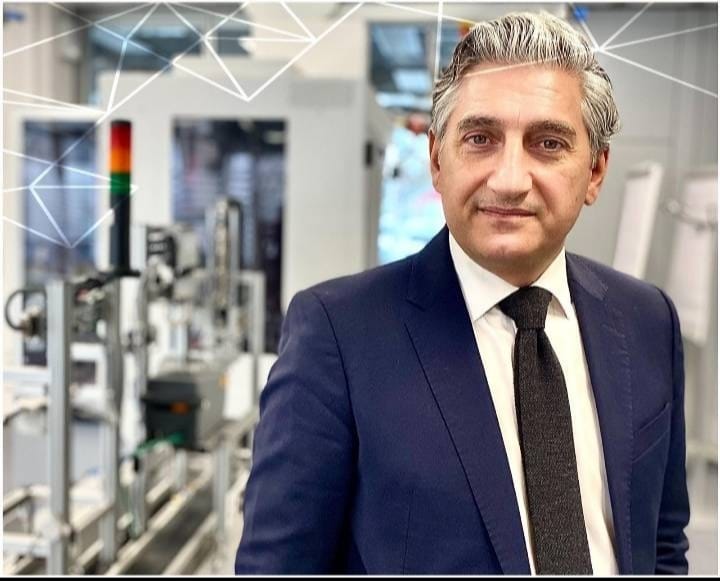
Sir, who is Nader Imani? Please tell us a little about yourself.
I would describe myself as a world citizen with an extensive career and experience in working in multiple countries across the globe. Throughout my professional journey, I have had the opportunity to interact with diverse cultures, traditions, and people, which has provided me with a unique perspective of the world.
I firmly believe that individuals from different parts of the world share more similarities than differences, and that we should strive to go beyond artificial borders that divide us. This belief has been reinforced by my experience of co-constructing one of the most relevant components for progress and prosperity, which has made me realize the importance of collaboration and mutual understanding. In summary,
I am a global citizen who holds a deep-rooted belief in the importance of breaking down barriers and promoting cooperation amongst individuals and nations in order to achieve shared progress and prosperity.
What are the origins of Festo Didactic? How did it all begin?
Festo Didactic is the technological education division of Festo, a leading industrial automation company. While innovation is critical to achieving the highest levels of productivity in manufacturing, Festo recognizes that growth is equally dependent on the upskilling and reskilling of the workforce. Festo Didactic was born out of this realization in the early 1960s, when Festo recognized that the diffusion of automation technology in manufacturing would not be successful without the education and training of the workforce. The company’s focus on education and training has helped to support the productivity of manufacturing businesses by providing continuous education for current employees and graduating students with higher employability skills.
Through its innovative training programs, Festo Didactic strives to help companies address the skills gap by preparing workers to operate and maintain advanced manufacturing technology. By doing so, Festo Didactic aims to drive the growth and success of the manufacturing industry while also supporting the careers of individual workers. At the same time, we work with educational systems across the world to help them consider technological trends in national qualification frameworks and technicians and engineers curriculum.
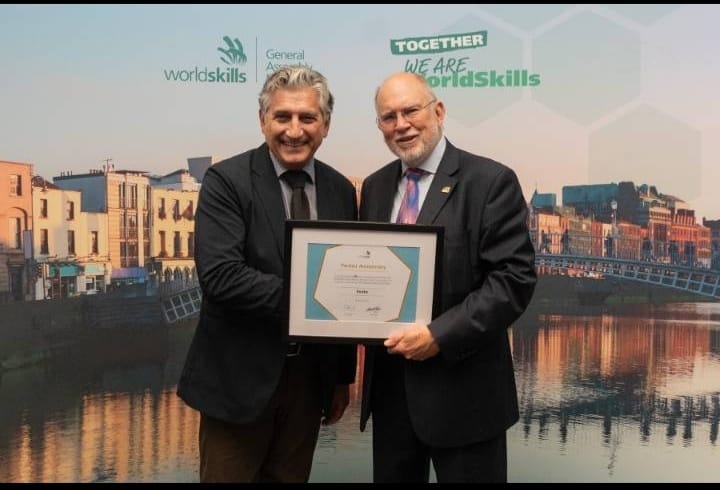
What does the company do? Is it a regional organization or a global one?
Festo Didactic works closely with multiple stakeholders to ensure lifelong learning opportunities are available to individuals at all levels of education. These stakeholders include governments, educational organizations such as ministries, universities, schools, trade unions, employer associations, bilateral and multilateral development agencies, and industries.
Through these partnerships, Festo Didactic is able to develop demand-driven qualification programs that are tailored to the needs of businesses and individuals in different regions, countries, and even continents. This approach is crucial to effectively addressing skills gaps and ensuring that the workforce is equipped with the necessary skills to remain competitive in a constantly evolving job market. By collaborating with stakeholders across the education and industrial sectors, Festo Didactic is able to provide meaningful, real-world training solutions that are designed to bridge the gap between education and industry. This helps to ensure that individuals are able to access the training and education they need to succeed throughout their career journeys.
Festo used to operate in Nigeria? Why did it leave? Any plans to return?
Festo strongly believes in the potential of Africa as it undergoes its industrialization journey. As such, Festo has been committed to expanding its presence in Africa as both an industrial and educational partner. The company’s presence in Africa dates back to 1974 when it began doing business in South Africa and to 2004 as it started its direct operations in Nigeria, and over the years, Festo has continued to expand its operations and partnerships in the region.
To support its growth in Nigeria, Festo has established an official representation and has also driven its educational activities through its own employees who are part of the Regional EMEA (Europe Middle East Africa) team. This is a testament to Festo’s long-term commitment to supporting industrialization in Nigeria through partnerships with local businesses, educational institutions, and governments.
Through its industrial and educational activities, Festo aims to support the development of a highly skilled workforce in Africa that can effectively drive technological innovation, economic growth, and social development in the region.
By investing in Africa’s future, Festo hopes to contribute to a brighter, more prosperous future for individuals and communities throughout the continent.
Festo Didactic is a partner to many educational institutions, governments, state organizations, and companies. Please tell us who some of them are.
The list of partners is literally endless. In many countries, Festo has national partnership framework, like in the US with NC3, or in Brazil with SENATI or in Singapore with TUM Asia. Worldwide we have a cooperation framework with UNIDO, LKD Facilities and UNESCO Global Education Coalition. We also have cooperation with both regional organisations – such as with SEAMEO-Voctech in Asia, with European Commission Global Gateway in Europe – and with international organisations such as WorldSkills. Again, a complete list would be too long.
In Africa we have a close cooperation with AUDA-NEPAD to support the WorldSkills Africa desk and other activities across the continent. In Nigeria, we are in discussions with AHK Nigeria-Germany for an industrial certification. I also hope to join forces with Afe Babalola University in Ado-Ekiti during my next trip to Nigeria.
So, Festo recognizes that partnerships are crucial to achieve its vision of providing value for education to work, supporting societal progress and individual prosperity. As such, Festo works closely with a range of partners like those listed above – which includes government policy makers, educational institutions, academic corps and industrial business leaders – to develop cutting-edge technical education equipment and curriculum, design teacher training programs, and predict labor market trends. Festo’s partnerships are a critical part of its education value chain generation as they help to ensure that the company’s resources and expertise are focused on meeting the needs of individuals, businesses, and communities. By collaborating with partners who share the same vision of leveraging socio-economic impact through adequate education and training programs, Festo is able to achieve more than it could alone.
Ultimately, Festo hopes that its partnerships will help to drive progress for both individuals and society as a whole. By working together to develop innovative education and training programs tailored to the needs of different industries and regions, Festo and its partners can help individuals to acquire the skills they need to succeed in the workplace and support the growth of industry and society, while also promoting individual fulfillment and prosperity.
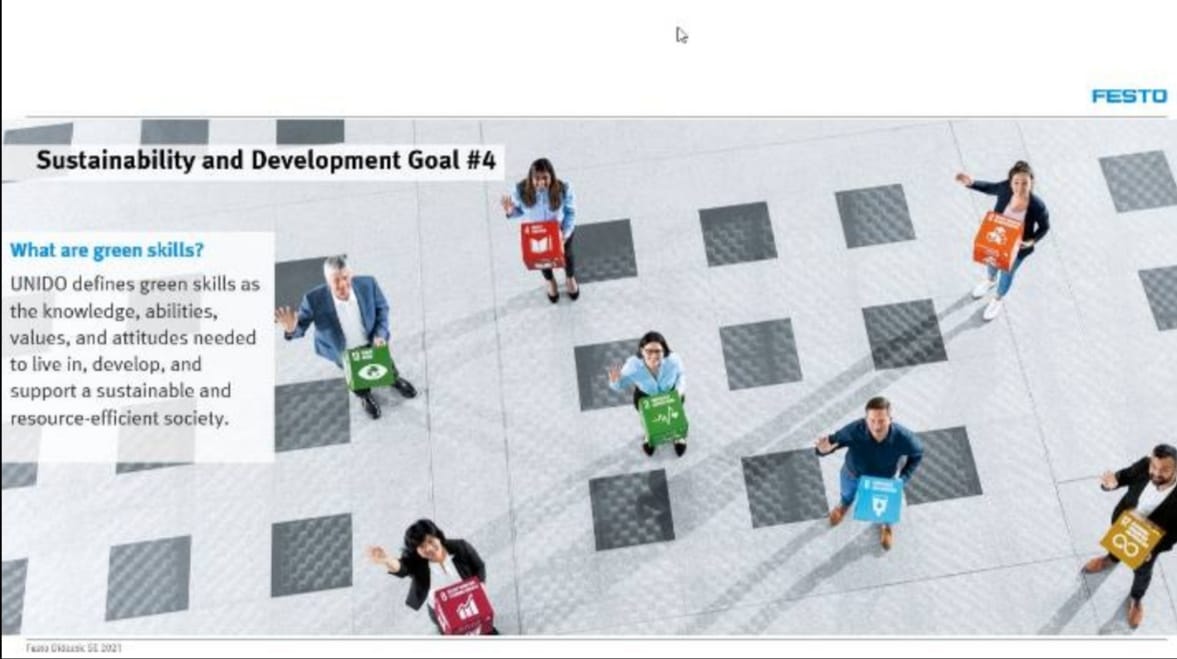
Festo Didactic is the world-leading provider of equipment and solutions for technical education. How big is the global technical education industry?
The global technical education industry is a vast and highly fragmented market, with regional or sub-regional focuses. According to current market research (www.worlddidac.org), the size of the entire technical education industry is estimated to be over 1.5 billion EUR, with a rapidly increasing tendency proportional to the worldwide economic growth. With the increasing demand for skilled labor and the ongoing industrialization of developing countries, the demand for technical education and vocational training has been on the rise. This trend has led to a significant increase in investment in technical education programs and equipment, as well as the need for skilled instructors and mentors. Festo Didactic is a major player in this global industry, offering innovative training solutions across a range of industries and regions. With a focus on providing real-world training experiences and cutting-edge curriculum, Festo Didactic is well-positioned to meet the growing demand for technical education around the world.
Is there any significant or noticeable difference in economic development between countries that pay ample attention to technical education and those that don’t?
You make an excellent point! Education is a critical enabler at all levels, from the individual to the global level. At each level, both public and private organizations play a vital role in making education instrumental for progress and prosperity.
On World Cities Day, which is celebrated annually on October 31st, we reflect on the impact of education and lifelong learning on cities around the world. The UNESCO (www.uil.unesco.org) has established about 300 learning cities that demonstrate the opportunities that education and lifelong learning can provide for individuals within these cities. Investing in education has been proven to be a catalyst for societal and individual development. The human development index is often used to measure the impact of education on societal development, and it has consistently shown that investing in education can increase the decency of human life. Indeed, investing in people’s education is one of the most significant investments that we can make for the future, as education is an investment that lasts forever, regardless of where and when it takes place. By investing in education, we can help to create a brighter future for individuals, communities, and society as a whole.
Nigeria currently has the highest number of out-of-school children in the world at over 20 million. Can more focus on technical education bring these dreadful numbers down? If yes, how?
A strong education system is crucial for supporting the development and progress of individuals and societies. This system needs to be built on a strong foundation, starting with primary education that focuses on values, literacy, and numeracy. From there, secondary education is necessary to build citizenship, social skills, and knowledge in areas such as science, technology, engineering, and mathematics. Finally, tertiary education provides advanced skills and knowledge for professionals in various fields.
However, technical and vocational education and training (TVET) programs are key to addressing the needs of a large part of society in sustainable development and resilience for green and digital transition. TVET programs must be developed with a demand-driven approach, taking into account the needs of growing economic sectors, job profiles required for economic growth, and the specific competencies and skills required for each job. This approach ensures that supply and demand for education and training programs work together effectively. In the case of Nigeria, investing in renewable energy such as solar and wind, green hydrogen, providing installation services for air conditioning and refrigeration techniques, supporting car maintenance services, and offering health services like nursing could be examples of TVET activities that address the needs of the bulk of society. These programs provide individuals with the skills and knowledge they need to secure quality jobs and contribute to the overall development of the society and the economy. Overall, investing in quality education is no longer a choice but a necessity in the knowledge-based economy of today, and TVET programs play a critical role in ensuring individuals are equipped with the skills they need to succeed in the workforce.
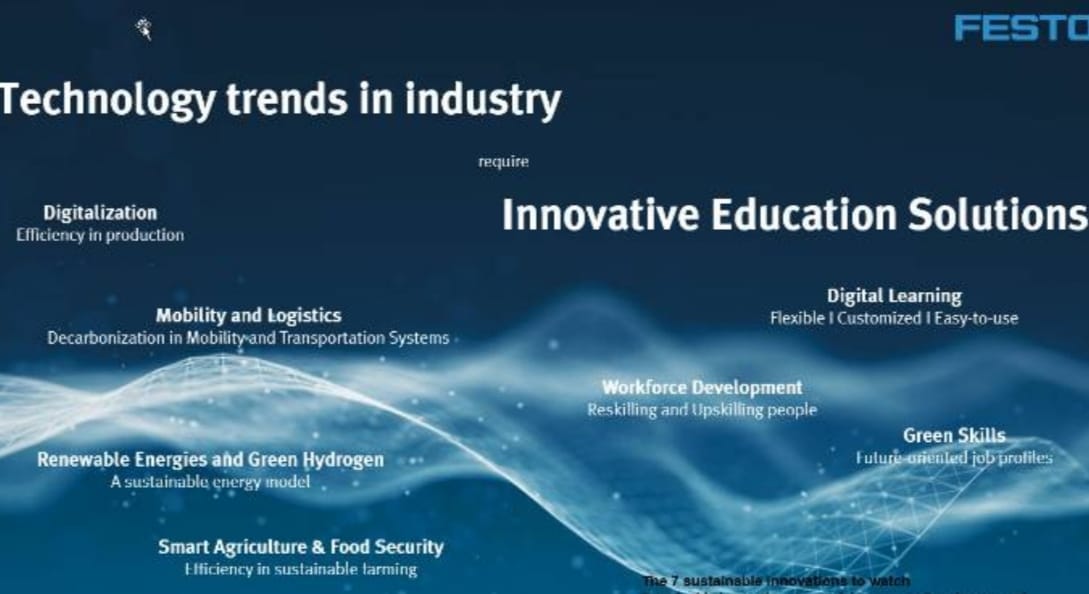
Nigeria is an ego-driven society and because of that, many parents send their children to university even if they are not most suited to an academic pursuit. One, is technical education an inferior form of education? Two, if it is not, what can be done to reorient people’s minds and convince them otherwise?
Education has the remarkable ability to offer individuals decent jobs and a quality of life. While society certainly needs university graduates, there must also be post-secondary non-academic education systems that offer opportunities for young people to secure decent jobs and lead fulfilling lives.
At its core, TVET programs play a critical role in providing individuals with the skills and knowledge they need to succeed in specific jobs or industries. Whether it is a mechatronic technician, a welder, a CNC machining technician, a hairdresser, a cook, or a barrister, every job plays a vital role in society and deserves recognition and value. It is essential to instill a sense of pride in TVET graduates, recognizing them for their achievements and the valuable contributions they make to society. TVET graduates should be celebrated and respected for the role they play in building and sustaining the economy, and in making significant contributions to society. Our collaboration with the worldwide TVET systems (www.worldskills.org) help us to work on dimensions that value TVET in each country and continent. Ultimately, the goal of education must be to enhance the individual’s quality of life, facilitate lifelong learning, and contribute to the development and prosperity of society as a whole. By investing in TVET programs, we can support individuals and communities to achieve this goal and secure a decent life for all.
Are there any African countries that are doing particularly well in terms of technical education? What is it that they are doing that both encourages and impresses you?
There are several African countries that are making great strides in their educational excellence, particularly in areas such as compulsory primary and secondary education, TVET programs, and sector-specific technical education.
For example, Rwanda has implemented a compulsory primary and secondary education program for all children, resulting in significant progress in literacy and enrollment rates. Morocco has implemented sector-based regional TVET programs, which are designed to align with the needs of local labor markets and support employability for graduates.
Similarly, the World Bank has supported sector-specific technical education programs in Ethiopia, Kenya, and Tanzania, which are designed to directly address skills gaps and meet the demands of specific labor markets. These programs focus on providing students with practical, hands-on skills that are directly applicable to the industry.
By matching the supply and demand of education to the needs of specific industries and labor markets, these new-age education systems are not only supporting the employability of graduates but also boosting productivity and economic growth. As such, they are making a significant impact on developing the education system, improving skills and job opportunities for individuals, and driving a prosperous and sustainable economy.
There has been a growing concern about the quality and employability of a significant number of graduates that universities in Africa produce. What are your thoughts on this?
Not only in Africa but everywhere. A quality education system that is relevant to the needs of the labor market is critical in ensuring employability of graduates and ultimately, quality of life for individuals and communities as a whole. However, when the education system, especially TVET and Academia, is disconnected from the needs of employers and the labor market, there is cause for concern on both the quality of education and the employability of graduates.
To ensure a sound education system, it is crucial to involve the end beneficiaries, i.e. the employers, in defining the curricula. This will help to ensure that the education and training offered is relevant to the current and future needs of the labor market, providing students with the skills and knowledge, needed to enter the workforce and succeed in their careers. By involving employers in the development of education curriculum, it also ensures that investment in education is directed towards areas of greatest need and areas that will generate the most significant impact. This will lead to increased productivity, growth, and development, ultimately benefiting the entire society at large. Overall, a sound education system requires a strong partnership between academia, technical education, employers, and the labour market to ensure that education and training programs are relevant to the demands of the day, and prepare students with the skills, knowledge, and experience needed to succeed in their chosen careers. Our longstanding collaboration with the United Nations for Industrial Development Organization through its Learning and Knowledge Development Facility (www.lkdfacility.org) or recent private sector advisory work with the European Union through its Global Gateway (Global Gateway overview (europa.eu)) will help us to better align all education supply chain stakeholders among others in Africa.
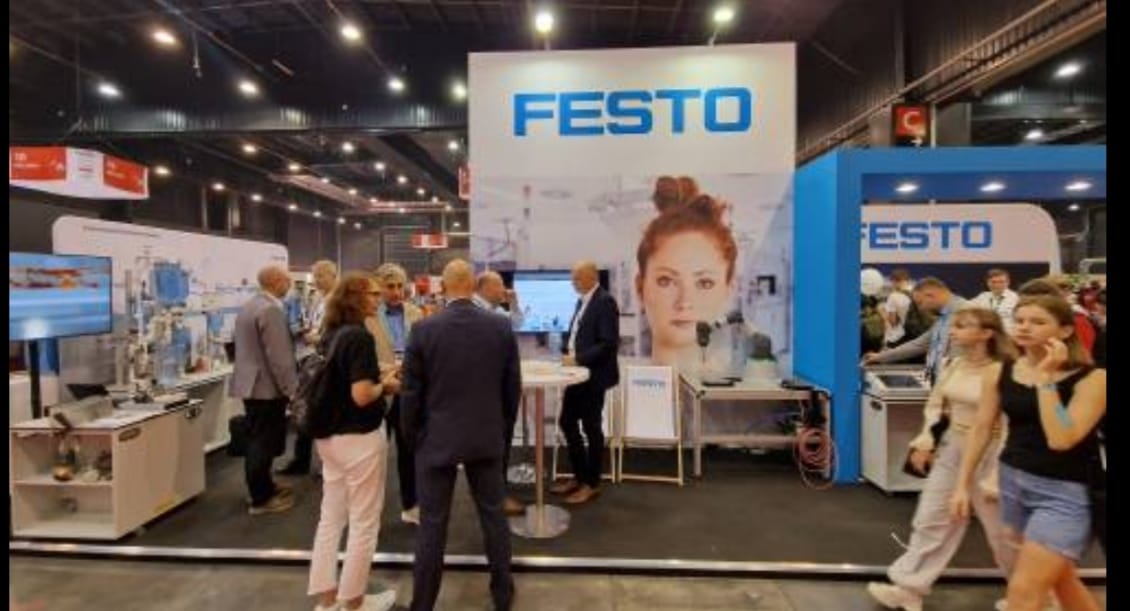
What does Festo Didactic still hope to achieve, especially in Africa, that it doesn’t feel like it has achieved yet?
A better education system that is connected to the demands of the nascent industry is essential in supporting the pace of industrialization. This can be achieved by involving educational institutions in more up-skilling and reskilling programs of local industrial workforce in manufacturing with industrial certification programs, which helps to connect the industry to the education infrastructure and provide students with the skills they need to succeed in their chosen careers. Additionally, innovative education content that supports the digital and green transition is crucial in ensuring that individuals have a solid foundation in the skills and knowledge needed for the future. This can be supported through the use of digital technology for a better and more quality education for all.
Finally, education for all should truly be for all, including girls. Technical education for girls can support gender parity and equity in the labor market. At Festo, we believe in contributing to these overall goals by developing innovative education solutions tailored to meet the needs of diverse groups, and in particular, by supporting gender equity in education and the workforce.
By working together to ensure that education and industry are connected and that education is accessible to all, we can support the pace of industrialization, promote sustainable growth and development, and build a brighter future for individuals, communities, and society as a whole.
_____________________________
Nader-Iman Imani Ph.D, Vice President of Festo Didactic, Global Education was recently appointed as Private Sector Advisor for Education and Research to EU Global Gateway. After 3 first academic research and teaching activities, Dr. Nader Imani Joined Festo, a global leader in automation and technical education in 1992. Since then he has been assuming different roles and management responsibilities with Festo Didactic in Germany, as well as acting as CEO of Festo Didactic in the United States and Canada. Since he was appointed as Executive Vice President Global Education of Festo Didactic in 2017, he has been responsible for larger education projects with impact on socio-economic progress around the globe. He holds a Ph.D. in Mechanical Engineering from Ecole Centrale de Nantes in France as well as a qualification degree from Harvard Business School in the United States and Saint Gallen School of Management in Switzerland. In 2014 he was elected as a member of the council of the Worlddidac Association, the largest education association in the world and was subsequently elected its President in 2020. Dr. Imani has been serving WorldSkills International as a member of its Advisory Board on Skills Development in Africa since 2017, further deepening his love for the African continent. Dr. Imani has been acting as an active partner of the United Nations (UN) as well as other bilateral and multilateral development agencies to drive innovation in the field of technical vocational education and training and industrial workforce development. president@worlddidac.org







































































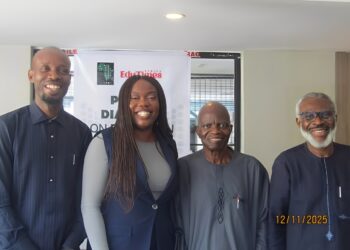










 EduTimes Africa, a product of Education Times Africa, is a magazine publication that aims to lend its support to close the yawning gap in Africa's educational development.
EduTimes Africa, a product of Education Times Africa, is a magazine publication that aims to lend its support to close the yawning gap in Africa's educational development.